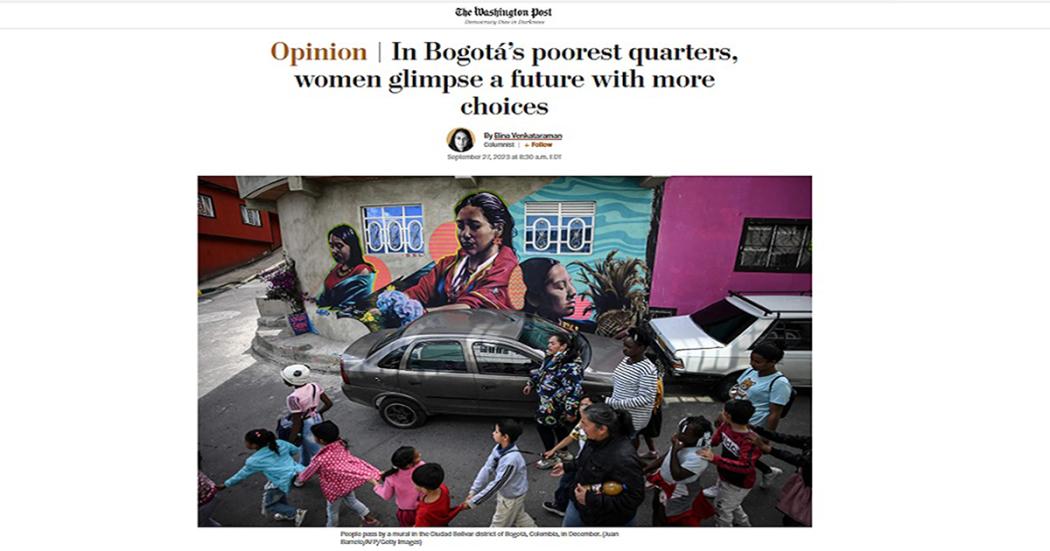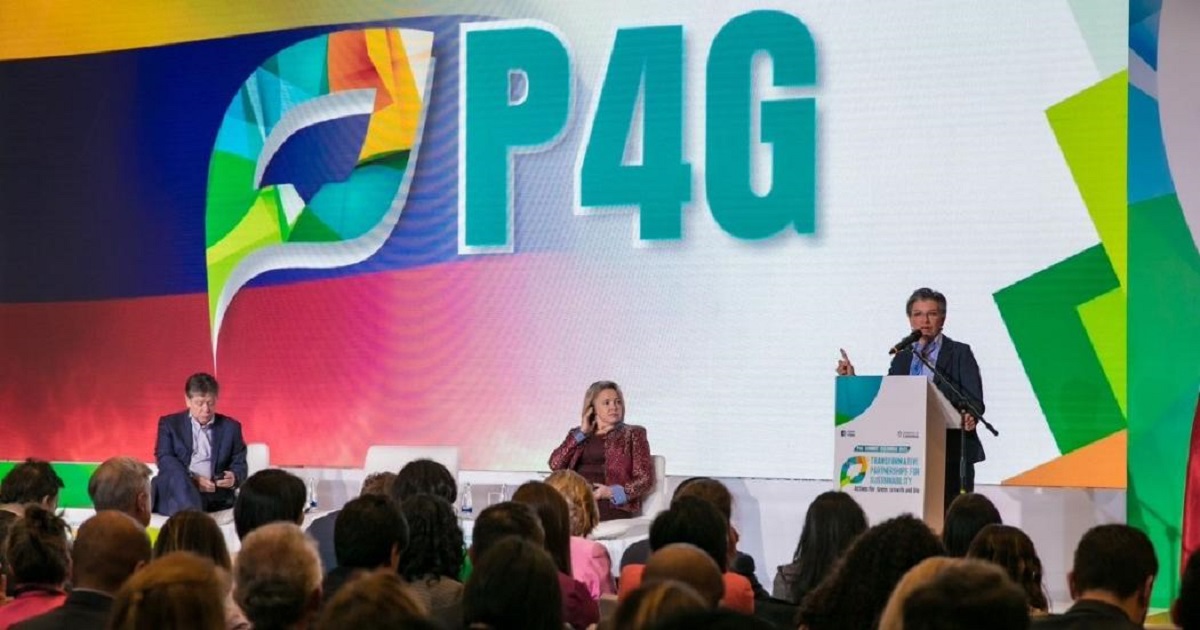In an opinion piece published in the U.S. influential newspaper The Washington Post, the transformative impact of Bogotá's Care System is brought to the forefront.
The column, titled "In Bogotá's poorest quarters, women glimpse a future with more choices," underscores the leadership of Mayor Claudia López and her Administration in the pursuit of gender equality and the centralization of their governance around the concept of Care.
The article's author, Bina Venkataraman, a journalist specialized in future-related topics, highlights how the "Care Blocks" have positively changed the daily lives of caregivers in Bogotá. In particular, there is a special focus on the experiences of users of the Manitas Care Block, located in the Ciudad Bolívar district. " A community center offers free courses to help women earn high school diplomas and practice yoga while city employees mind the children, elderly or people with disabilities in their care.
The article not only underscores the "Care Blocks" but also mentions the “Mujeres Que Reverdecen” initiative, the "Men in Care School" and the launch of the District Transportation Operator 'La Rolita.' These strategies not only bridge gender gaps but also create new job opportunities for women.
The column invites us to envision a future where caregiving tasks, historically predominantly performed by women from modest backgrounds, are recognized and valued on par with other activities. As Venkataraman expresses it, "One day in the distant future, caregiving could be as celebrated as carrying a football into an end zone. Rather than toil in the shadows, people who juggle children and aging parents might be applauded for their skills.”
Finally, the article calls for consideration of these innovations as a fundamental part of achieving true gender equity globally. "As political leaders in rich nations debate policies that can put more women into the halls of power, Bogotá's efforts are a reminder that the world's poorest caregivers also need innovative measures—if we are one day to inhabit a world in which the average woman's economic and political power is equal to that of the average man."








